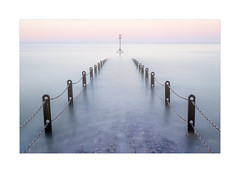The following statement has been signed by Jose Maria Aznar, David Trimble, John R. Bolton, Alejandro Toledo, Marcello Pera, Andrew Roberts, Fiamma Nirenstein, George Weigel, Robert F. Agostinelli and Carlos Bustelo:
Israel is a Western democracy and a normal country. Nonetheless, Israel has faced abnormal circumstances since its inception. In fact, Israel is the only Western democracy whose existence has been questioned by force, and whose legitimacy is still being questioned independently of its actions.
The recent flotilla crisis in the Mediterranean provided yet another occasion for Israel’s detractors to renew their frenzied campaign. It was so even before the facts of that tragic incident had come to light. Eyes were blind to the reasons why Israel had to respond to the Gaza flotilla’s clear provocation.
Because we believe Israel is subjected to unfair treatment, and are convinced that defending Israel means defending the values that made and sustain our Western civilization, we have decided to launch the Friends of Israel Initiative. Our goal is to bring reason and decency back to the discussion about Israel. We are an eclectic group, coming from different countries and holding different opinions on a range of issues. It goes without saying that we do not speak for the State of Israel and we do not defend every course of action that it decides upon. We are united, however, by the following beliefs, principles and aims:
First, Israel is a normal, Western democracy and should be treated as such. Its parliamentary system, legal traditions, education and scientific research facilities, and cultural achievements are as fundamental to it as to any other Western society. Indeed, in some of these areas, Israel is a world leader.
Second, attempts to question Israel’s basic legitimacy as a Jewish state in the Middle East are unacceptable to people who support liberal democratic values. The State of Israel was founded in the wake of United Nations Resolution 181, passed in 1947. It also arose out of an unbroken Jewish connection to the land that stretches back thousands of years. Israel does not derive its legitimacy, as some claim, from sympathy over the Holocaust. Instead, it derives legitimacy from international law and from the same right to self-determination claimed by all nations.
Third, as a fully legitimate member of the international community, Israel’s basic right to self-defense should not be questioned. Nor should it be forgotten that Israel faces unique security threats—from terror groups such as Hezbollah and Hamas, and from an Iran seeking nuclear weapons.
United Nations condemnations of Israel arising from last year’s Goldstone Report on the recent war in Gaza, for example, ignore the security challenges that Israel faces. All democracies should oppose such campaigns, which ultimately undermine the legitimacy not merely of Israel but of the U.N. itself.
Fourth, we must never forget that Israel is on our side in the battle against Islamism and terror. Israel stands on the front line of that fight as a bulwark of Judeo-Christian values. The belief that the democratic world can sacrifice Israel in order to placate Islamism is profoundly wrong and dangerous. Appeasement failed in the 1930s and it will fail today.
Fifth, attempts by people of good faith to facilitate peace between Israel and the Palestinians are always to be supported. But outsiders should beware of attempting to impose their own solutions. Israelis and Palestinians should know how to build a viable peace on their own. We can help them, but we cannot force them.
Sixth, we must be alive to the dangers that the campaign against Israel poses in reawakening anti-Semitism. Hostility to the Jews has been a stain on the Western world’s honor for centuries. It is a matter of basic self-respect that we actively confront and oppose new manifestations of an old and ugly problem.
The Friends of Israel Initiative has come together to encourage men and women of goodwill to reconsider their attitudes toward the Jewish state, and to relocate those attitudes inside the best of Western traditions rather than the worst. We urge them to recognize that it is in our own best interests that an increasingly jaded relationship between Israel and many of the world’s other liberal democracies is rescued and reinvigorated before it is too late for us all.
Mr. Aznar is a former prime minister of Spain. Mr. Trimble is a former first minister of Northern Ireland. Mr. Bolton is a former U.S. ambassador to the U.N. Mr. Toledo is a former president of Peru. Mr. Pera is a former president of the Italian Senate. Mr. Roberts is a British historian. Ms. Nirenstein is vice-president of the Committee on Foreign Affairs in the Italian Chamber of Deputies. Mr. Weigel is a senior fellow at the Ethics and Public Policy Center. Mr. Agostinelli is managing director of the Rhône Group. Mr. Bustelo is a former minister of industry in Spain.
http://online.wsj.com/article/SB10001424052748704862404575351430715581608.html?mod=WSJ_Opinion_LEFTTopOpinion


